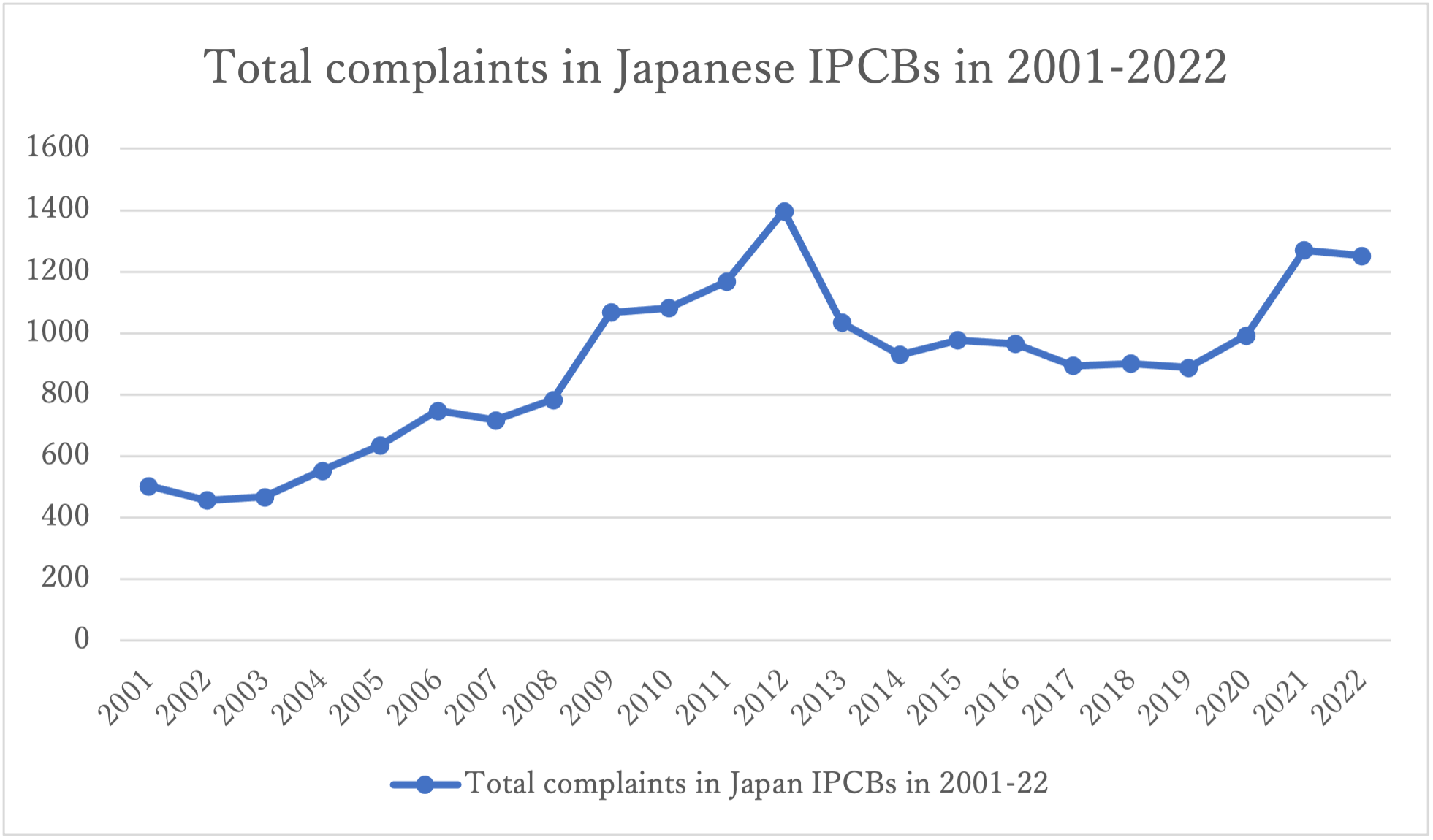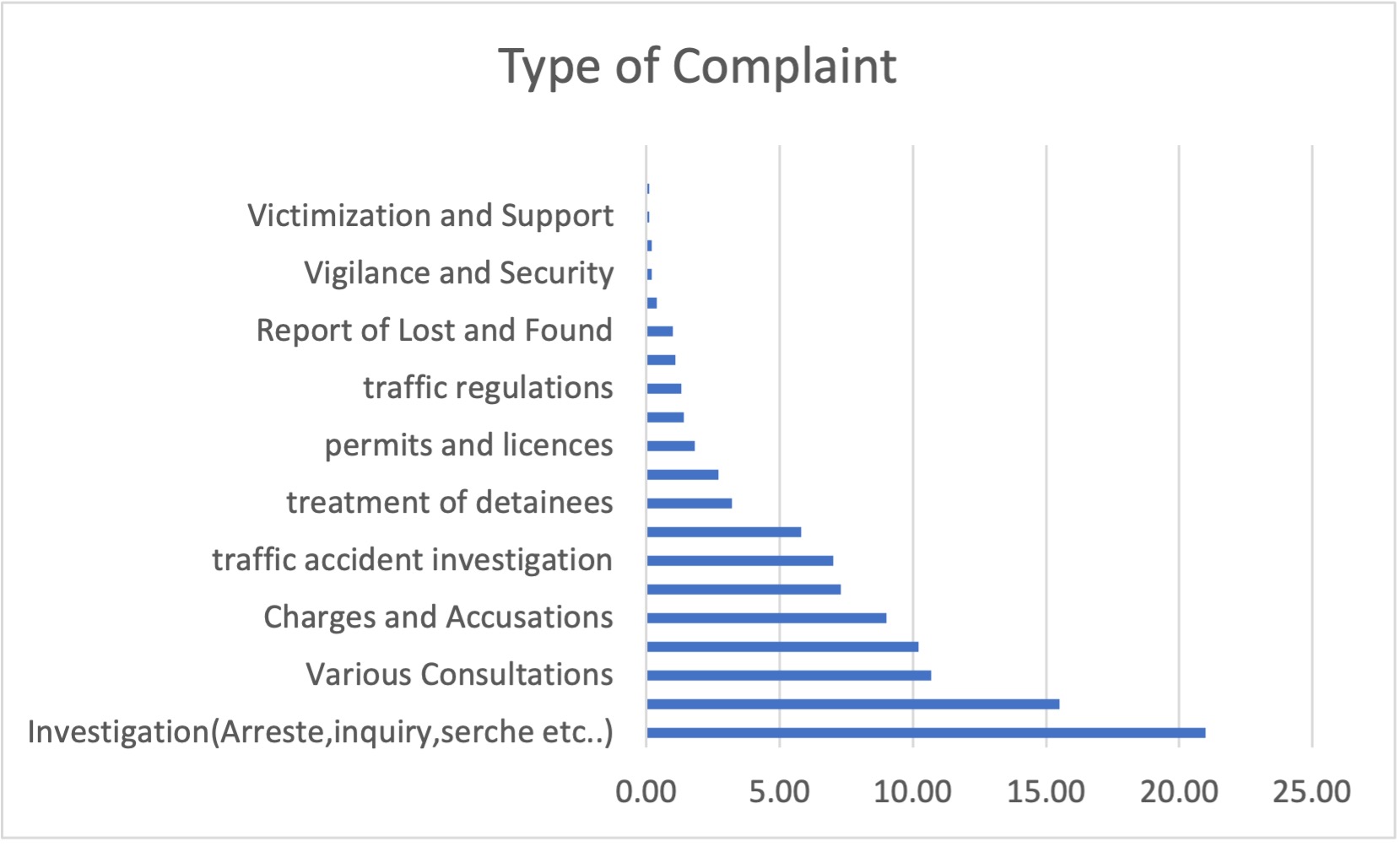Japan - Information on Country Independent Police Complaints Bodies
Historical Background
In Japan, the role of Independent Police Complaints Body is played by the Prefectural Public Safety Commission (PPSC), established in each prefecture. There are currently 47 PPSCs.
The public safety commission system was introduced in 1947 as part of Japan's democratization policy, based on the American system. The purpose of the Public Safety Commission is to ensure the democratic management of the police and its political neutrality through a collegial system of layman's control and representation of citizens. The current system of prefectural public safety commissions began in 1954.
The Public Safety Commission's official duties regarding the handling of citizen complaints were not specified. However, in 1999-2000, as the number of crimes increased sharply, the arrest rate declined, and the public's sense of insecurity (fear of crime) increased, a series of police scandals eroded the public's trust in the police. There followed a growing chorus of voices accusing the Public Security Commission of failing to manage the police. Citizens no longer willingly co-operated with the police and, in addition to accusations against police officers, there were cases of children of police officers being bullied at school. In response to this, the Police Reform Conference was established in 2000 under the leadership of the government, and police reform was implemented. Prior to 2000, complaints against the police could be filed by phone, fax, mail, at the police station, or in person with a police officer, and the police would respond on the spot. The Police Act was amended to add Article 79, which allows citizens to file complaints against the police with the Public Safety Commission, which is required to report its response to the complaint to the Commission, which in turn responds to the complainant.
Range and Types of Complaints Filed, and Response Period to Complaints [1]
There are two broad types of complaints. First, complaints filed in accordance with Article 79 of the Police Act are referred to as "statutory complaints". If a complainant has a complaint about the performance of duties by a police employee, he/she may file a complaint in writing with the PPSCs. Complaints under this system are:
- A complaint that a police employee has been disadvantaged in some way by an illegal or unjust act or failure to do what should have been done in the performance of his/her duties, and seeks correction of the disadvantage in a specific and individualized manner.
- A complaint against the inappropriate manner in which police personnel perform their duties.
Second, complaints not based on Article 79 of the Police Code are referred to as "non-statutory complaints”.
Handling of written complaints addressed to the police
The department of prefectural police or police officer receiving the complaint shall promptly report the complaint to the PPSC Office and report the complaint to the PPSC. The Chief of Prefectural Police shall personally notify the complainant in writing of the investigation of the facts and the measures to be taken based on the results of the investigation, or have the Chief of Prefectural Police or other staff members notify the complainant. Under the direction of the PPSC, the Chief of the Prefectural Police shall clarify the facts concerning the complaint, and report to the PPSC on the investigation of the facts of the complaint and the measures taken based on the results of the investigation.
Complaints not made in writing to the police shall be handled in accordance with "Handling of written complaints addressed to the police”. However, the complainant shall be notified of the results of the process in writing or by any other method deemed appropriate.
While the Administrative Procedure Law specifies the standard time period to be spent in processing a complaint, the Police Law does not specify a time period required to process a complaint. This is because the execution of duties by police personnel covers the protection of the life, body, and property of individuals and the maintenance of public safety and order in general. Therefore, there are various types of complaints, and the time required to process them varies from one area to another. However, it is required to respond to them within a period of time that is socially acceptable.
Police Act. Article 79
Whoever has complaint against execution of duties by the personnel of the Prefectural Police may lodge a complaint in document to the Prefectural Public Safety Commission through the procedure prescribed in the National Public Safety Commission Ordinance.
2. The Prefectural Public Safety Commission which received a complaint provided for in the previous paragraph shall faithfully handle it in accordance with laws and local ordinance, and shall notice its result to the complainant in document, except in the following cases.
(1) The complaint can be recognized as provided in order to obstruct lawful execution of the duties of the Prefectural Police.
(2) The current resident of the complainant is unknown.
(3) The complaint can be recognized as provided jointly with other complainants and other complainants have already been notified with the result of the joint complaint. (Participation in Lawsuit for Complaint) disposition or determination made by an Area Public Safety Commission or police personnel supervised by the Prefectural Public Commission. (Delegation to Cabinet Order)
Table 1 Number of complaints received in 2020. (Source: National Police Agency (Chief inspector of internal affairs), Situation of the operation of the complaint reporting systemin 2020).
Total
7,392 cases (100%)
Statutory complaints
992 cases (13.4%)
Non-statutory complaints
6,400 cases (86.6%)
Content of Complaints Filed
Since the beginning of the complaint system in 2001, the number of complaints has varied (Table 2). 21% of the complaints in 2022 were related to the investigation process (arrest, interrogation, search), followed by 15.5% for traffic control (Table 3).
Table 2: Total complaints in Japanese IPCBs in 2001 – 2022. (Source: National Police Agency (Chief Inspector of Internal Affairs), Situation of the operation of the complaint reporting system in 2022).

Table 3: Total complaints in Japanese IPCBs, in 2001 – 2022, broken down by primary reason for complaint. (Source: National Police Agency (Chief Inspector of Internal Affairs), Situation of the operation of the complaint reporting system in 2022).

There are examples of complaints leading to changes in policies and procedures. For example, in 2021, as an operational improvement order triggered by the complaints, a reminder was issued regarding the handling of detainees' belongings and documents (medical tickets of medical institutions) in the detention center. In another example, a mother complained that a police officer came to her house where there were only minors (junior high school and elementary (primary) school students) and asked about their family structure and emergency contact information. Following the complaint, the mothers were instructed that if there were only minors in the house, the police officers would hand out their business cards and visit them at a later date. In addition, a section was added to the police academy's role-playing training content to simulate the case where only a minor is home.












